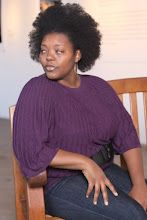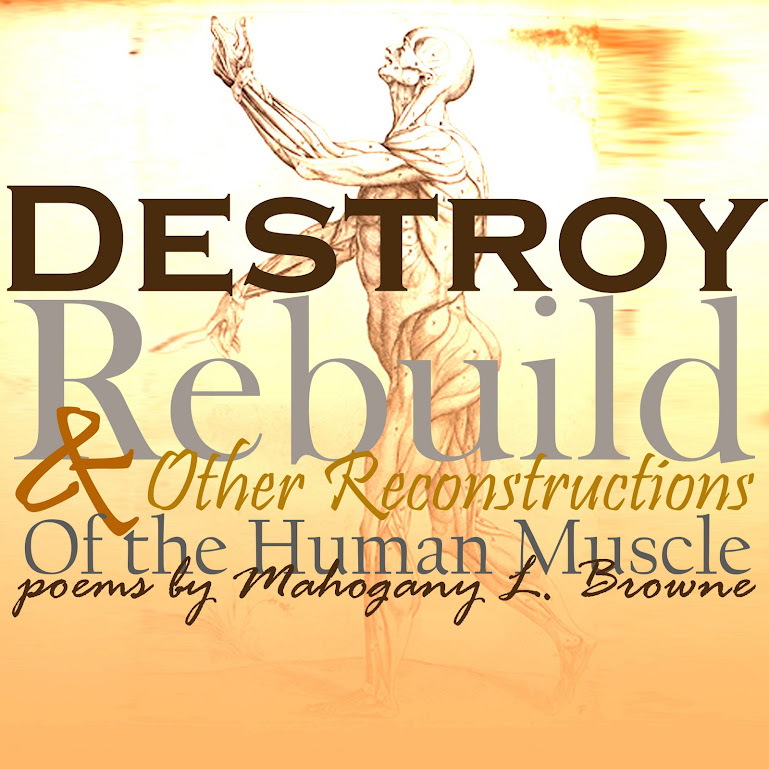so thanks to jive poetic, cleaning up my old laptop -- i found all my old joints when i was at the magazine -- things i thought i lost forever. i will be posting articles that were printed (or got canned for whatever reason) just to show you the element in that time frame from people i think are still relevant. first one up is kevin powell from MTV's Real World, starting editor with VIBE & Hip Hop Activist. he's actually running for a chair in the brooklyn district and he has always been an incredible man to me and amari. when i was first laid off -- he was one of the few that tapped into his connects to get me interviews for a new job. he added my battle to his hip hop community forum which was so huge for us -- being able to perform in al sharpton's meeting hall on a continuing basis was a blessing. so check out the interview. lemme know what you think. and don't mind the blog being all jacked up. my site is in construction -- so shaddup already :)
Step Into His World- One on One with Kevin Powell
by Mahogany L. Browne (2002)
He was a portrayed as the "angry Black man" on the first series of MTV's Real World. He then became a moving force of VIBE magazine's editorial staff. But his journey was only starting as a prominent figure in the literary world and as a vocalist for the Hip-Hop movement. Kevin Powell, former curator of the Brooklyn Museum of Art's Hip-Hop exhibit, has been at war for some time. Serving on the front lines of an exploited culture, Kevin Powell, the writer/poet/manager/editor, reveals the importance of his newest collective Step Into A World.
1) What stemmed Step Into A World? And how hard was it to link with all the writers?
I decided to do the anthology because I had grown tired of a lot of the bad fiction that was getting put out by major publishing houses, of all the spoken-word hustlers masquerading as poets, and in essence, disrespecting our poetic forebears like Langston Hughes, Gwendolyn Brooks and many many others; and of the too-many-to-count Hip-Hop journalists who not only do not
know anything about Hip-Hop music and culture, but even less about Black musical traditions. For example, I just read a review of Outkast's latest album in a certain magazine that prides itself on being authentic. The critic spent half the piece talking about why New York heads don't like groups from outside the N-Y like Outkast. That is very narrow to me and a waste of good space. Moreover, no where in the piece does the writer point to the fact that Hip-Hop pioneers like Afrika Bambaataa too donned costumes and was heavily influenced by the same funk flavors now being appropriated by Outkast. Those kinds of omissions say to me that the writer does not study.
So, rather than waiting for someone outside of our community to come along and document some of the best writers of our era, I decided to do it. Because of my work as a poet and a journalist, and because of my travels around the country and abroad, and because I make it a point to know as many writers as possible I literally subscribe to some 40 magazines, and try to own every
book, CD, or whatever comes from my generation of writers. It was not that difficult getting in touch with people.
2) What is the most common misconception about Hip-Hop journalists? And how has the book supported the reflection of the featured writers?
I really do not know what the most common misconception of Hip-Hop journalists is. What I do is to encourage anyone who wants to be a writer to read as much as possible, and not just stuff about Hip-Hop, or Hip-Hop magazines. To me, EVERY young writer who wants to write about Hip-Hop must read certain books so that he/she can be critically prepared:
1. Blues People by LeRoi Jones (Amiri Baraka)
2. Black Music by LeRoi Jones (Amiri Barka)
3. The Death of Rhythm and Blues by Nelson George
4. Rap Attack by David Toop
And I encourage up-and-coming Hip-Hop journalists to go back and read music criticism from DOWN BEAT in the 1980s, as well as Village Voice's and Rolling Stone's dating from the 1980's until at least the early 1990's. That kind of study gives one an appreciation for the tradition of music journalism and, I think, will reinforce the notion that writing is about the subject, NOT the writer. Too many cats who call themselves writers want to be bigger stars than the folks they are interviewing, or, it seems, some cats get off on dissin' people just to get a rep.
3) How were the writers selected for the project?
a. Technical competence, which is why a lot of the writing in the anthology is previously published material by writers who have been at it for some time.
b. As I say in the Introduction, I also looked for classic, timeless pieces. For example, Scott Poulson-Bryant's piece on Puff Daddy remains, after 7 years, the best piece I have ever read on Puffy. It captured him then and it captures him today, and will do so tomorrow. Not many writers can do that.
c. I looked for writers who were not that well known, but could write their asses off, like Cali homie Imani Tolliver. Her poem, "gin and juice," is not only brilliant, to me, but also mad courageous (it is about her being raped by her father).
4) What do you think the generation of new urban writers are bringing to the table? And what can they learn from Step Into...?
Well, I think it is wonderful that so many young people, especially young people of color, around the country want to express themselves. So what is being brought to the table is an energy, an eagerness to dialogue, something that I feel is crucial for our communities as we grapple with daily oppression and all the insanities which stem from oppression. What these writers can learn from STEP INTO A WORLD is that there are at least 105 Black writers doing some serious work on all fronts: fiction, poetry, Hip-Hop journalism, criticism, plays and screenplays, etc. And that the reward for taking your craft seriously is that you begin to have your work institutionalized in anthologies, which easily surpasses a cat saying they won a slam contest in the 1990's. No one is going to remember that. But a poem, for example, that stands up on the page will last and may impact someone who is not even born yet.
5) What is the difference between Hip-Hop journalist and entertainment journalist? Is there one?
Hip-Hop journalist is just saying you have a specialty, but it is all
entertainment in a sense, since music is entertainment. But, to me, calling oneself a Hip-Hop journalist should mean you approach the entire culture (not just the music, but all the elements) like an anthropoligist, constantly digging for truths, treasures, etc. Never satisfied with your last piece.
Always knowing there is more to learn about Hip-Hop culture. For example, I thought I knew a lot about Hip-Hop before curating the exhibit. I now know how much I did not know given all the people I've met, who have been kind enough to share with me.
6) College, age, hometown, ya know the FACTS...
College don't matter because I was kicked out. Never finished. Self-educated anyhow, which, to me, is the best education one can get. College teaches techniques, not how to live and think, critically. Bill Gates did not finish college, neither did Puff Daddy or David Geffen. Malcolm X only got to the 8th grade, as did Richard Wright and August Wilson. And James Baldwin, arguably the greatest American essayist of the past 50 years, only had a high school diploma. So, to me, it really depends on what you decide to do with your life and what steps you take to feed your mind.
Was born and raised in Jersey City, New Jersey 32 years ago, but Brooklyn, New York, which I will NEVER leave completely, is my new hometown. And I could not imagine living anywhere else these days.
7) What is your next endeavor(s)?
* A Hip-Hop photography book with legendary photographer Ernie Paniciolli, due out in the Spring 2002 (HarperCollins). I met Ernie via my curating the Hip-Hop exhibit at the Brooklyn Museum and was awe-struck by how long he has been shooting Hip-Hop-related matter (some 25 years) and how there has never
really been a Hip-Hop photography book on par with the rock and jazz ones I have seen, and own.
* A untitled second book of political and cultural essays.
* A second poetry book.
* A narrative history of Hip-Hop, which is not due for a few years, and which I am still trying to figure out how to write.
* An activist, ALWAYS, on behalf of my peeps, be in the community here in Brooklyn, on college campuses, at churches, in prisons, wherever I can be of service.
Sunday, March 26, 2006
Subscribe to:
Post Comments (Atom)





.jpg)
2 comments:
damn, i didn't know he was did and continues to do so much. shame his most infamous moment is noted as "being the angry black man."
glad u found some of your old treasures mo. must be excting, can't wait to read more.
Oh goodness Ms. Mo! I have silently read your blog for a minute now and often didn't leave comments because...dammit, just because! :) But to read your writing about Kevin Powell!!!! I've heard him speak a few different times, have three of his books (including "Step Into...) and even got him to say happy birthday to me on the mic when he was keynoting at a conference I attended.
I love the style of this article and the fact that unlike many articles with people today, you allowed him to do the majority of the talking. I'm going back to my old XXL, The Source, and Honey mags to look for your articles. I am not only impressed with your poetry, but now, also your writing and taste in subjects! :)
~fallen angel
Post a Comment